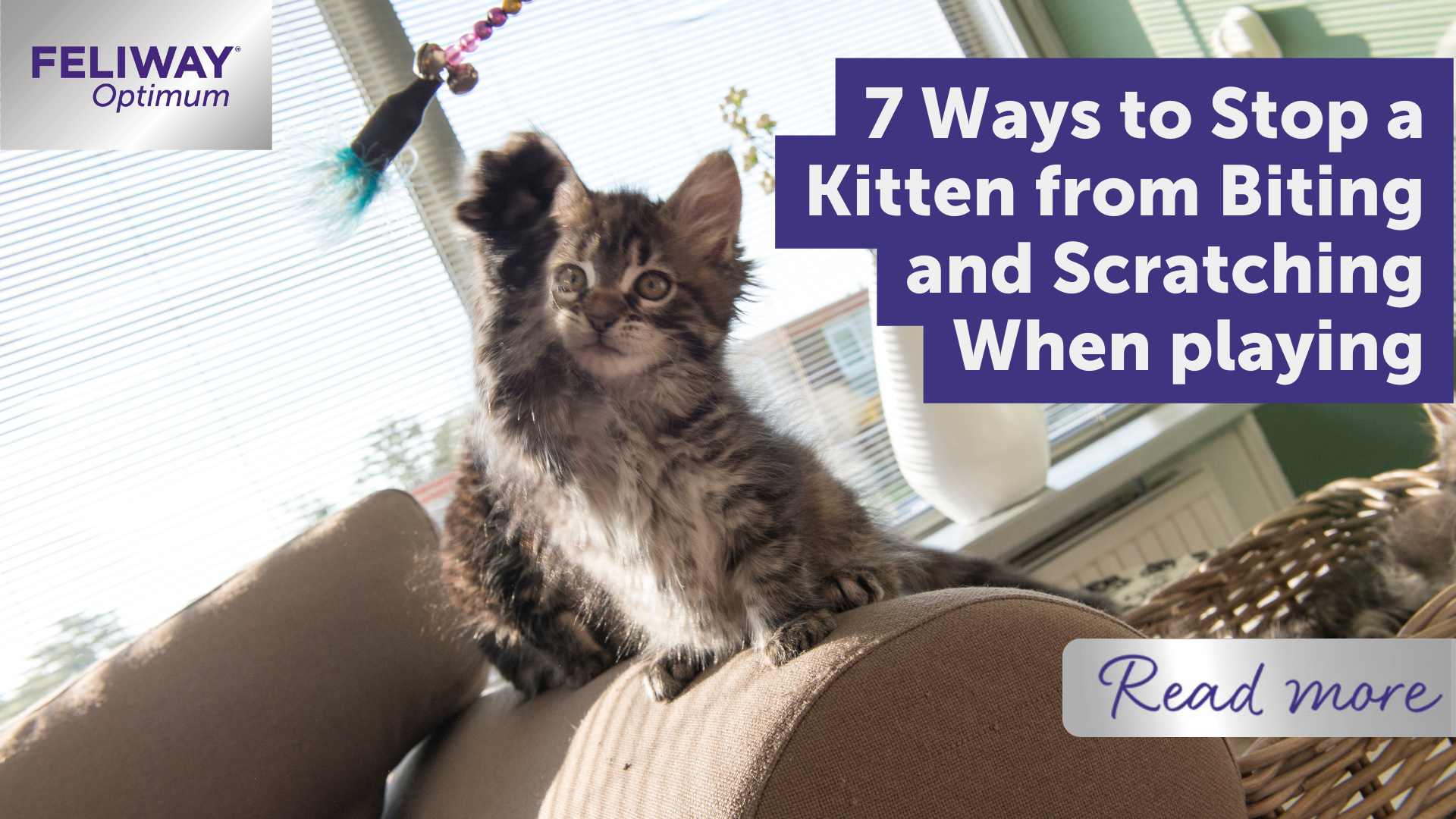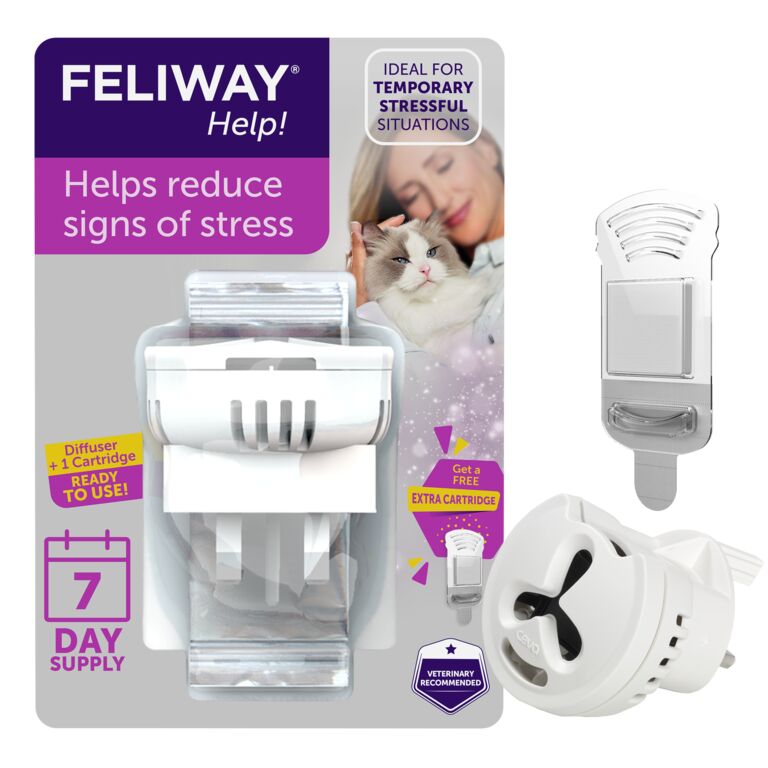
7 Ways to Stop a Kitten from Biting and Scratching when playing
Does your kitty sometimes get carried away and leave you with a sharp bite or scratch?
Though occasional play biting can be expected, it's important to teach your pet not to scratch or bite you while they are young. That way, you'll still be able to play with your happy, friendly kitty once they're grown - without the risk of injury!
7 TIPS TO STOP A KITTEN FROM BITING AND SCRATCHING
1. Take time to handle your kitten
Your kitten is learning about their new environment, which includes human members of the household. Their experiences with people up until 4 months of age can influence how they interact with humans for the rest of their life. Careful handling will help your kitty to learn that this is not something to be worried about.
Start by encouraging your kitten to come to you rather than you going to them - making the choice will help your kitten to feel positive.
Make sure your kitten has the opportunity to hide, climb, scratch and play when they choose to as this helps to avoid frustration.
2. Play with your kitten every day
Excited, playful kitties may want to grab onto your hands and feet, but it's important to help them to learn that toys are for play hunting, not you! Otherwise, as they become bigger, their biting may cause accidents, and end up hurting you.
To reinforce the 'toys, not hands!' message, never use your hands or feet as kitty playthings. Instead, always use a toy - ideally one held at a distance from your body, such as feathers on a string, balls or stuffed toys.
Routine is important for our cats, and daily play sessions of 10-15 minutes, two or three times a day, can help your cat bond with you, feel relaxed and happy at home - and get rid of any excess kitten energy! Start sessions when your kitten is happy and relaxed and stop whenever your pet gets over excited and too rough.
Talking to your kitten with a calm voice as you play can make the session even more enjoyable for them. Teaching your kitten how to play calmly is an important part of your journey together; by reinforcing good play behaviours, and ignoring unwanted ones everyday, your pet will soon learn.
3. Redirect to a scratching post
Scratching is a natural behaviour for cats. They all need a scratching post to stretch their claws and mark their territory. In play, your kitty may use their claws as hunting and pouncing practice - play aggression is normal! But if this practice is on you, work to redirect your kitten to their scratching post or toys every time the claws come out.
You can recognise when your kitty is planning to pounce and scratch by their body posture - dilated pupils, tail moving back and forth, and ears flat to the head are all signs of an incoming kitty attack!
Training your kitten to use their scratching post should be another key part of their lessons. Make sure every kitty in your house has access to at least one scratching post each (plus one extra) to keep claws in check!
4. Check that your kitty is healthy
If your kitty is becoming more aggressive and bites or scratches you a lot (rather than an occasional accidental bite during play), it is important to get your kitten checked by your vet to make sure there is nothing wrong with your pet's health. Pain or illness can cause your kitten to feel defensive, and make them more likely to try and protect themselves.
5. Stop play, and ignore biting or scratching behaviours immediately
If your kitty bites or scratches you, be sure to stop fussing or playing with your cat immediately. Step away from your pet and out of striking range, and do not fuss or reward them with attention.
Walk away from your pet, ignoring them and leaving them alone to calm down with no interaction (do not talk to them or look in their direction) for 5-10 minutes. Be sure to do this every time your pet becomes aggressive, and they will soon learn that bad behaviour means that they will be ignored!
After a few minutes, when your kitten is calm and you feel it is time to resume play.
Keep in mind that cats respond best to positive reinforcement, so always stay calm and be patient. Never shout at your cat. Instead use a calm tone and never lose your temper. Your pet won't understand, and an angry reaction may cause your kitten to become nervous or fearful, which may make their behaviour worsen.
6. Avoid reinforcing unwanted biting or scratching behaviour
Though it may be tempting to fuss or continue playing with your kitty after they bite or scratch you, this attention can reinforce that these behaviours are ok - they may even begin to bite or scratch you for more attention. Instead, always step away and ignore your cat immediately when unwanted behaviour occurs.
7. Create a calm kitty environment
A stressed or anxious kitty may also be more likely to display biting or scratching behaviours. To help your kitten feel calm, make sure their environment is just right. Check that you have provided enough resources for every cat (including hiding spots, access to food, water and litter trays and scratching posts), make sure your kitty has a regular routine for meals and playtimes, and try to limit any extra noises or changes in the house.
Using a FELIWAY Optimum Diffuser, plugged into the place where your cat spends the most time, can help to support a calm environment, and is clinically proven to limit scratching, spraying and hiding behaviours.



































